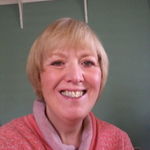Jill's Journal
Aortic Regurgitation, Joined September 22, 2012
Aortic Regurgitation
Joined September 22, 2012
-
 I am from: Missoula, Montana
I am from: Missoula, Montana -
 My surgery date is: December 7, 2017
My surgery date is: December 7, 2017









I think it would be comforting for you to see a cardiologist sooner, but hopefully the PA will answer some of your questions. Be vocal about needing sleep meds. It can take awhile for the sternum to feel okay again and even then one can be "aware" of it for a long time. Don't know how to describe it, but I am still "aware" of it years later, especially when I am tired or doing something physical like carrying heavy groceries. Take care Jill and a happy post-OHS 2018 to you!
Has anyone tried Ambien. If so, what is your experience with it? My family hasn't had good luck with it. The doctor gave me a script for it, but the instructions said not to use it if you are taking something that causes sleepiness. I am on clonazapam so that nipped taking Ambien in the bud for me. I know getting off clonazapam will take a lot of time. I am thinking of using THC which is legal in our state to see if it works. Would be nice to get off clonazapam.
And I think it's terrible your cardiologist left you alone so soon after OHS without at least giving you another cardiologist you could see in his place for one visit.
Sometimes I don't think doctors realise what it's like to be back out there in the world again with various side effects and complications and questions that need answers after such major surgery. I found it very scary to leave hospital - and yet I was in hospital for 4 weeks! Followed by a live-in cardiac rehab hospital for 3 weeks! And even after those 7 weeks it was scary.
I'm always impressed (and also saddened) by patients in the USA who are back out into the real world in a few days and left to deal with side effects on their own, along with all the questions and worries that one obviously has.
OHS patients are so tough, and many have to act tougher than they can possible be.
Take care Jill.
White noise machine
Melatonin
Lavender oil rubbed on my feet
cPAP machine (every night)
But after surgery, for about 2 months I did a lot of laying in bed watching Netflix with headphones while my husband slept. I think a lot of it was that I was afraid to go to sleep - that I might twist or turn myself and open the sutures or break something inside. Valid concerns, all things considered, but I never did hurt myself sleeping.
Hope you find a solution that works for you!
-Meredith
I would really like to understand why this happens to so many people. In reality, I guess our beautiful hearts and bodies aren't happy with the changes that have occurred and our brains have been under a great deal of stress from the heart lung machine. All that I know is I need some decent sleep soon. I took a pain pill early this a.m. for some relief. This is not something I would usually do and don't want to make a habit of it for sure. But I needed to rest and have soreness in my chest muscles and legs that was bothering me. The chest muscles seem to be worse today too.
I went to the BT therapist before surgery and did wonderfully getting out of the hospital in three days. So my husband and I decided to give it another try for RLS (restless leg) and leg pain from back surgery. The RLS seemed to move down into my feet last night. I guess lower is better and maybe it will go away again.
I walked almost two miles today. That might be the chest culprit.
THE has been in my thoughts. I guessential I should do that sooner than later as Sessions doesn't seem to want anyone to have marijuana medical or otherwise. I do take melatonin and nighttime Tylenol along with clonazapam and now amitriptiline. The amitriptiline used to work, but now it is like taking nothing.
If this lasts another four weeks I guess I will be okay. The body just isn't happy with us. But we are alive and feeling much better. I keep telling my brain and body everythingis okay but I guess it has to figure it out in its own time. Just like I keep telling my heart to slow down, but it wants to heal first.
Take care and peace and good health be with you all.
I too want drugs out of my life. But insomnia has ruled my whole life so don't know if that will happen. There is always hope because I don't think these drug companies are very honest about how their drugs work.
1. Under my arms to relieve the weight on my shoulders
2. Under my knees to give me a little freedom of movememnt
3. Under my neck, so I could sleep in a reclined position without expending energy holding my head up
These the pillow positions helped me really relax and at least get a few good hours of sleep during the day.
The restless leg syndrome though - oy. I know I have a reaction to atorvastatin-if I take it too early my legs are bouncy bouncy all night long, but if I take it right before I fall asleep it doesn't bother me. Is there a chance you are taking a maintenance medicine that is causing the RLS?
You should be able to ride your bike again soon, within the next few months I would think!
-Meredith
Medicine in America can be too specialized and corporate. I am seeing more and more of this even in our small communty. Doctors are no longer given the time to get to know or even converse with their patients. I felt like they are mechanics doing their job and getting on to the next one. PA's are becoming the norm when more actual doctors should be hired.
This has to be frustrating for doctors too. But because they so specialized, I believe they need to work in teams. As an example, my jaw hurt for a long time prior to surgery. My pain doctor tried neck epidurals and a nerve block. My jaw pain is pretty much gone post heart surgery. Was it angina? I don't know. But I believe another specialist would "find" something else to blame it on. Heck, my pain doctor didn't even know how to use a stethoscope after my first OHS when I asked him to listen to my lungs fearing I might have fluid on one.
Made me wonder how other health systems around the world handle patients. Something is amiss in the US.
The French medical system is struggling with too many patients and too few doctors, nurses, and resources as well.
One thing I have noticed is that there are more and more female doctors and surgeons. I was treated by several female cardiologists and had a female second surgeon. The feminising of the profession is very positive for a cultural change.
Since patient stories are not part of the system, I think it is important to write out your experience - so that your narrative becomes part of the experience and the report of your surgery. This is one of the ways to take back the experience and make it yours and be heard. Writing everything out was very healing for me.
Take care Jill.